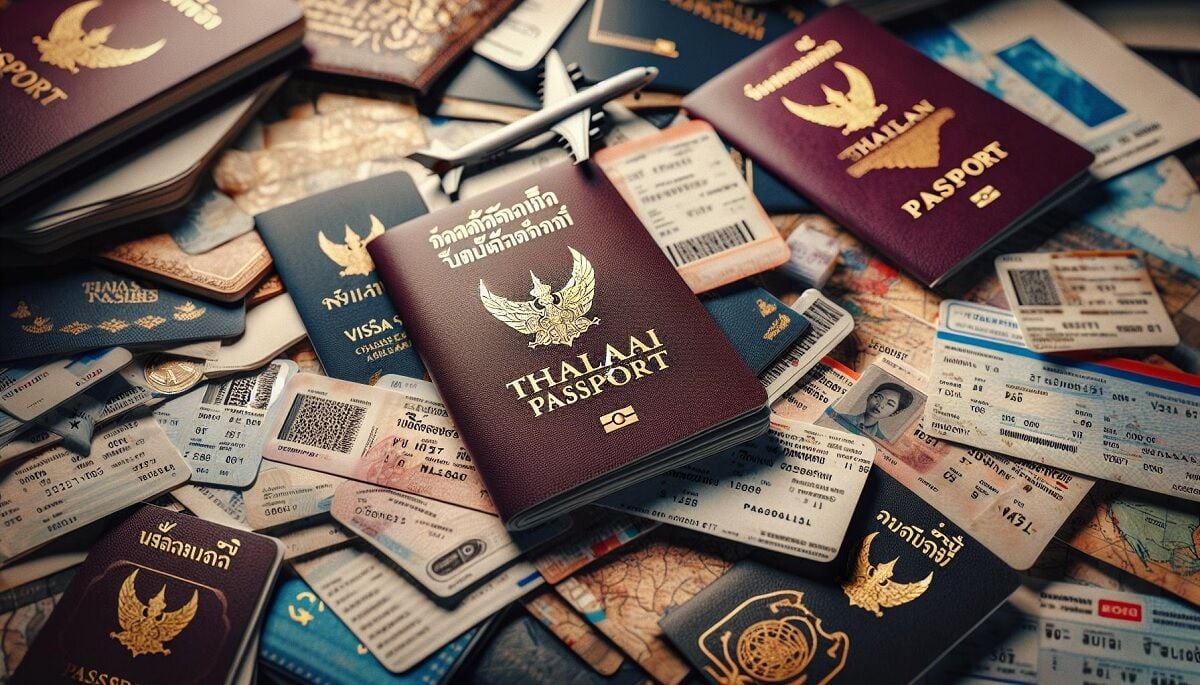Pros and cons of dual citizenship in Thailand

Exploring the intricacies of dual citizenship represents a complex journey, replete with various potential advantages and disadvantages. If the concept of acquiring dual citizenship, specifically with Canada and your country of origin, has ever crossed your mind, then this article warrants your attention. We will be assessing the complexities of dual citizenship in detail, emphasizing both its positive and negative outcomes that may directly impact you.
Canada’s attractive social programs and advanced economy make it an appealing prospect for many. But it’s not just about the perks. There are considerations like increased tax rates, potential conflicts between countries, and restrictions on certain jobs that need to be taken into account.
So, whether you’re contemplating the leap or just curious about the concept, join us as we unpack the realities of dual citizenship. This knowledge could be pivotal in making an informed decision about your future.
Understanding dual citizenship in Thailand
Building on the overall perspective of dual citizenship, let’s dive deeper into the specific context of Thailand. The Southeast Asian country presents particular nuances and considerations in its legal framework and acquisition process.
Definition and legal framework
Navigating the world of dual citizenship starts with understanding its foundation – the legal framework. Particularly in Thailand, the Nationality Act comprises definitive regulations. For instance, Section 14 and Section 18, as amended by Nationality Act No 4 BE2551 2008, highlight stipulations related to dual citizenship. Courses and clauses about nationality, such as 121, 13, 15, 16, 17, 20, 21, and 23, aptly emphasize the gravity and meticulousness of naturalization processes. A specific role player in these considerations is the Committee on Nationality Consideration. Constituted under Section 25 by the Nationality Act No 4 BE2551 2008, the Committee serves to guide and consult the Minister pertinent to dual citizenship.
Routes to obtaining dual citizenship
Dual citizenship acquisition offers various routes, each carrying its unique set of complexities and timeframes. From naturalization based on years of residence to deriving nationality through marriage, birth, and parenthood, the avenues are extensive. However, the most suitable route is arguably Citizenship by Investment. This form of citizenship acquisition prioritises investors and can potentially culminate within a few months, without requiring prior residence. It’s seen explosive growth, as evidenced by Grenada witnessing a rise of 5586% between 2014 and 2022 in Citizenship by Investment applications. Identifying your optimal route requires factoring in your unique circumstances and specific ‘Dual citizenship pros and cons in Thailand.’
Remember, it’s always advisable to understand dual citizenship’s rights, benefits, responsibilities, and potential implications before making any commitment. Always conduct due diligence, and consult with an expert if needed. This advice holds regardless of considering dual citizenship in Thailand or any other part of the globe.
Benefits of dual citizenship in Thailand

Possessing dual citizenship in Thailand brings with it a myriad of potential perks. From simplified travel arrangements to employment opportunities and premium healthcare access, the advantages are quite substantial. Let’s delve deeper into some of the salient benefits.
Ease of travel and residence
Being a dual citizen can materially ease your travel arrangements. For instance, those with dual citizenship can relish the freedom to reside continually in Thailand, without the constant worry of visa renewals or immigration controls. In essence, you enjoy the same travel and residence privileges as a native Thai, under the auspices of the Nationality Act BE 2508.
Moreover, take into account the global recognition of Thai passports. Such passports often afford visa-free entry or visa-on-arrival access to an assortment of countries around the world. Travelling globally becomes significantly less cumbersome when you hold dual citizenship.
Economic and employment opportunities
In regards to economic perks, dual citizenship can open up a multitude of employment opportunities. Thai law restricts certain professions to Thai citizens, such as medical practitioners, lawyers, and civil servants. Hence, being a dual citizen, you get entry into this restricted labour market.
Simultaneously, remember that owning property in Thailand becomes undemanding with dual citizenship. Thai law generally forbids foreigners from owning land; however, this restriction disappears for those holding Thai citizenship.
Education and health benefits
As a dual citizen, it’s your right to access the Thai public education system. Study at local schools where education is typically free or comparatively low cost.
Further enhancing the allure of dual citizenship is access to healthcare services. Thai citizens often receive discounted rates at public hospitals while also getting coverage under the national healthcare policy. So, dual citizenship can be a real boon when considering health care costs.
Indeed, understanding the dual citizenship pros and cons in Thailand helps you gauge the true value of this avenue. Possessing a Thai passport alongside your own does not merely offer ease of travel, but also myriad opportunities, rights, and invaluable benefits in the economic, employment, and health sectors.
Challenges of dual citizenship in Thailand

Navigating through the intricacies of dual citizenship can be a daunting task. While having a second passport from Thailand may provide you with numerous benefits, it’s vital to acknowledge the potential challenges it might entail. This section will discuss these challenges extensively, shedding light on legal and bureaucratic hurdles, financial implications, and social and cultural adjustments.
Legal and bureaucratic hurdles
Your journey to obtaining dual citizenship is often riddled with cumbersome legal procedures. In Thailand, the Nationality Act BE 2508 governs the principles of nationality and requires strict adherence. It’s important to understand that, as per section 13, a person can renounce their nationality if they wish, but this comes with its own set of complications.
Also, some countries don’t recognize dual citizenship, which adds another layer of complexity to your status. As a dual citizen, you might find yourself grappling with conflicts between the laws of your two home countries. In case of a dispute or military conflict, you’ll have to decide where your loyalty lies. Remember that each country sees you as their citizen exclusively and expects your full compliance with its laws.
Financial implications
While dual citizenship can open avenues towards financial growth, it can also impose potential financial challenges. If you’re considering getting a second passport from Thailand, understand that tax rates can be a significant factor. While holding a second citizenship does not in itself directly increase your taxes, your first country of citizenship might raise tax rates if you move to another country.
Moreover, if you spend less than 183 days in your first country, you’ll no longer be a tax resident there but could face an increase in some tax rates. Hence it’s crucial to be aware of the potential tax implications in both countries.
Social and cultural adjustments
Landing in a new country is always exciting, but living there and adopting its culture and language is a completely different ball game. The term “Farang”, stemming from the Persian interpretation of the word “Franks”, is often used in Thailand to refer to foreigners, notably white men or Europeans. As a Farang, you might find the Thai culture fascinating but equally challenging to adapt.
Understanding and respecting the local traditions, customs, and languages is key to your successful integration into Thai society. Therefore, seeking dual citizenship in Thailand warrants careful consideration of these cultural dynamics.
While the pros and cons of dual citizenship in Thailand vary according to personal circumstances, being well-informed can help you navigate through potential obstacles, ensuring a smoother transition.
Important considerations

While pondering the pros and cons of dual citizenship in Thailand, several factors merit your attention. These include the utilisation of multiple passports and the impact on property ownership.
Using Multiple Passports
As a dual citizen, access to various passports becomes a reality. It’s a factor that simplifies international travel significantly. For instance, the hurdles one typically encounters, such as visa applications or extended border checks, diminish in many cases. For example, a Thai-Algerian flying to the Schengen States with a Portuguese passport enjoys a hassle-free experience. One can also quickly obtain a US eTA if they are, say, a Portuguese citizen. While there might be numerous dual citizenship pros and cons to consider in Thailand, it’s an undeniable fact that holding multiple passports presents concrete advantages in travel contexts.
Impact on Property Ownership
The effect on property ownership is another critical element in the dual citizenship equation. In particular, Thailand has stringent property ownership laws for non-citizens. However, securing Thai dual citizenship erases these restrictions. Consequently, property ownership in Thailand becomes as straightforward for you as it is for any Thai citizen. More significantly, these benefits extend to the country of your other citizenship.
Dual citizenship can play a transformative role in how you navigate international borders and property ownership rules. Contemplating the implications of these outcomes can help you make an informed decision about dual citizenship in Thailand.
As a cruise ship passenger, obtaining a Thai visa on arrival involves presenting your passport, a completed visa application form, a recent passport-sized photograph, and the visa fee at the immigration counter upon arrival in Thailand. Ensure you meet the eligibility criteria and have the required documents ready.
Latest Thailand News
Follow The Thaiger on Google News:



























